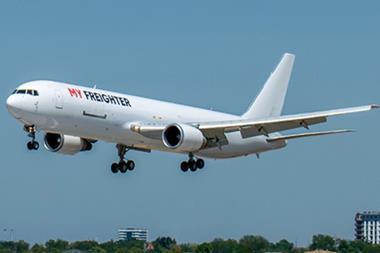Singapore’s Cargo Community Network (CCN) and Microsoft have launched the world’s first blockchain-based air cargo billing, costing and reconciliation system.
Announced at the IATA World Cargo Symposium, the system was developed following a hackathon organised by CCN and Microsoft and a two-month proof-of-concept that involved partners such as Singapore Airlines, SATS, Alliance21 and Bolloré.
Using Microsoft Azure Blockchain technology, the system is intended to minimise errors and improve the efficiency of billing and reconciliation throughout the supply chain.
Information such as shipment details from the flight manifest, freight status update and air waybill is accessible in real time from a single source through the new system.
Airlines and freight forwarders can also update their shipments and compute charges in real-time through the built-in smart contract feature for upfront reconciliation.
This provides timely financial information to stakeholders while enabling greater agility in revenue recognition, decision-making, risk management and customer service, IT giant Microsoft said.
“The typical air cargo billing, costing and reconciliation process can involve many stakeholders along the entire supply chain,” said Teow Boon Ling, CCN chief executive.
“These processes are also very manual, manpower-intensive and prone to error. By using blockchain on Microsoft Azure, not only does this shorten the billing cycle from up to three weeks to a matter of hours, it can also reduce discrepancies, while enabling greater accountability and visibility across the entire supply chain,” Teow added.
For Microsoft Singapore, managing director Kevin Wo said: “In the competitive air cargo industry where speed and efficiency are key differentiators, technology can play an important role to enable greater operational efficiency across the entire supply chain.
“By using a robust, blockchain on Azure hybrid cloud set-up with high availability, Cargo Community Network is well-positioned to help airlines and freight forwarders to be quicker and more efficient with their billing processes, which can translate into tangible value-add for the industry across the board,” Wo concluded.










